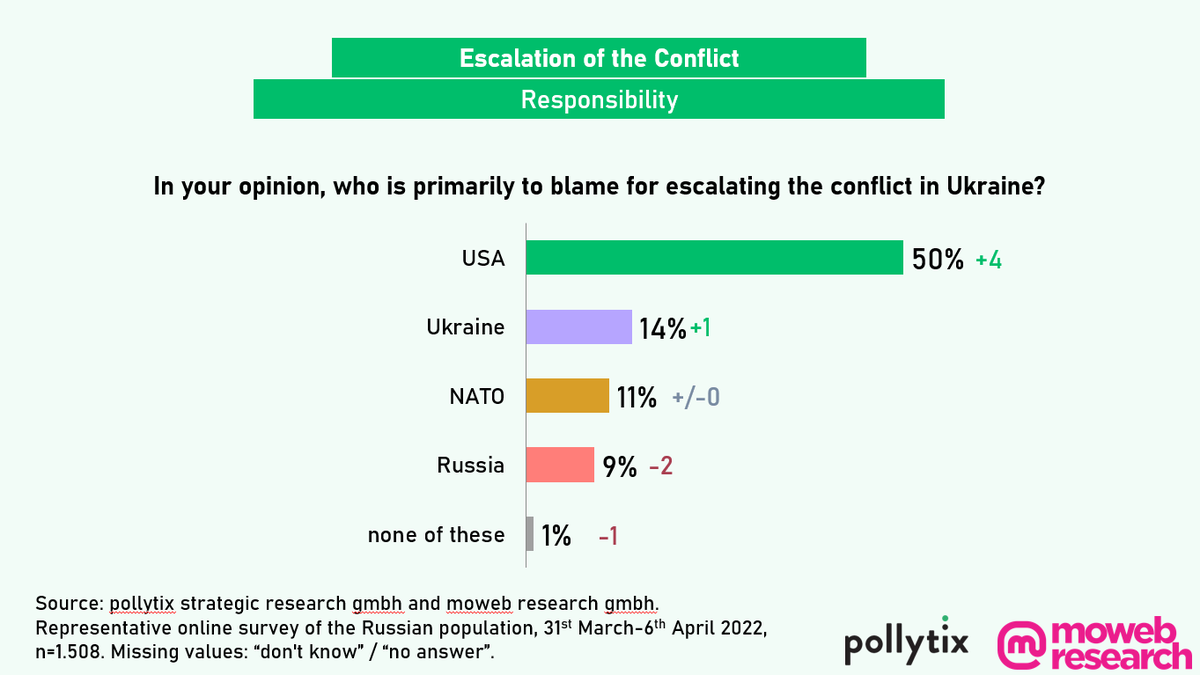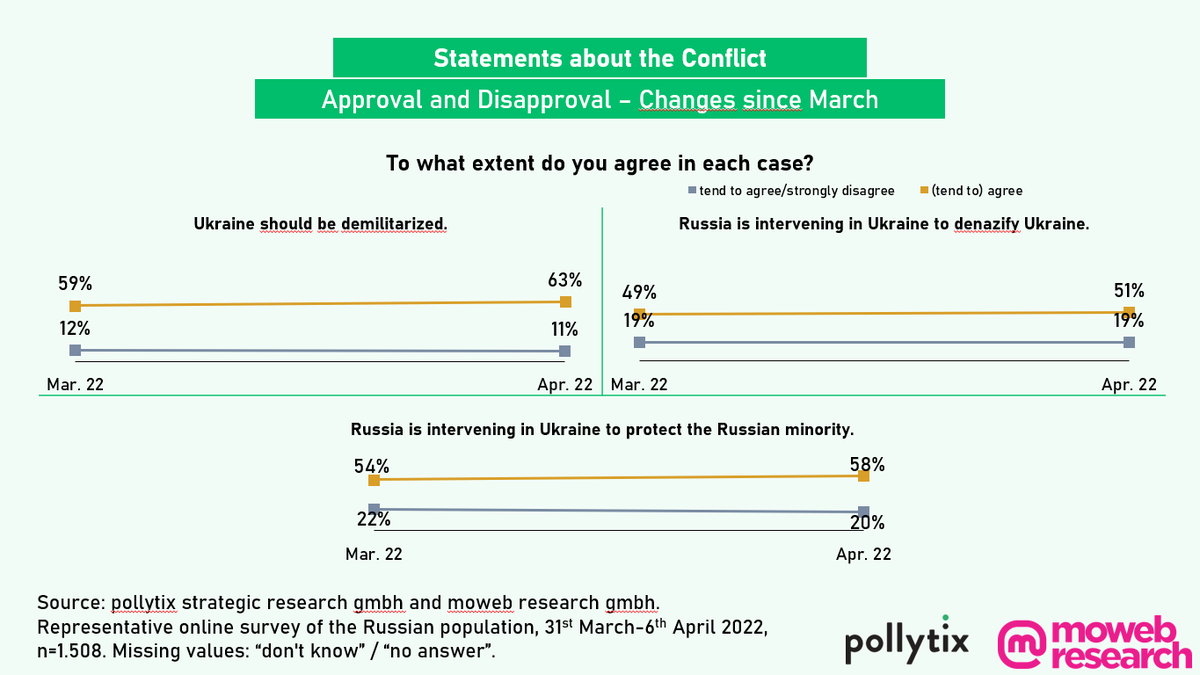
In early march, we published a study on how Russians feel about the #war in #Ukraine.
We repeated this survey in early April with 1508 interviews in collaboration with @mowebresearch.
The survey took place before the atrocities in #Bucha became public. Results in a 🧵👇(1/n)
We repeated this survey in early April with 1508 interviews in collaboration with @mowebresearch.
The survey took place before the atrocities in #Bucha became public. Results in a 🧵👇(1/n)
To obtain genuine & honest answers, the survey was conducted online. Since the first survey, the #propaganda has intensified and #pressure on critical voices in #Russia has increased. Therefore, any changes to march results only serve as an indicator for mood changes. (2/n)
57% of Russsians support Russia's "military intervention" in Ukraine (+9% since March). Support is increasing, but is lower than in other recently published polls, possibly due to online methodology where less pressure is present compared to phone/face2face methodologies. (3/n) 

Support amongst older Russians is stable but has increased amongst younger Russians aged under 40: Half of them now support the "military intervention", opposition has decreased or is becoming more silent. Still: 26% of younger Russions express disapproval in our survey. (4/n) 

At the same time, Russians increasingly reject the idea of withdrawing troops from Ukraine; 62% disapprove (up 10% since March), only 17% approve. (5/n) 

Russians also increasingly rally behind their president #Putin. 3 in 4 rate him as trustworthy, hence it is not just 'Putin's war', criticism is diminishing. (6/n) 

Even more clearly than in March, Russians blame the #USA for escalating the conflict in #Ukraine, 1 in 2 Russians hold this view. Only 9% see #Russia as mainly responsible. (7/n) 

Hardly surprising, Russians' opinion of Western countries is becoming more negative. Only 1 in 5 hold a positive opinion of the #USA. #Germany and #France (although being on a higer level) also in decline, whilst #Russia and #Belarus seen more positively. (8/n) 

4 in 5 Russians perceive Western #Sanctions against #Russia as unjustified, up 6% since March, only 12% see them as justified. (9/n) 

However, less Russians than in March perceive Western Sanctions on Russia having an impact on Russia... (10/n) 

Compared to March, more Russians go with the official Russian narrative of '#demilitarization', '#denazification' and 'protection of Russian #minority' in #Ukraine. Propaganda and restriction of free media seem to have an effect. (12/n) 

Still, more than 4 in 5 Russians want #Crimea recognised as Russian territory. Only 16% support Ukrainian administration of #Donetsk and #Luhansk. Support for #Ukraine's right to join the #EU remains virtually unchanged at 39%. (13/n) 

In a nutshell: No signs of mood change in Russian public against the war & #Putin, the opposite is the case: Russian Propaganda and oppression works, Russians increasingly rally behind Putin and reject withdrawal of troops from #Ukraine. Full report here: pollytix.eu/survey-wave-2-…
• • •
Missing some Tweet in this thread? You can try to
force a refresh












